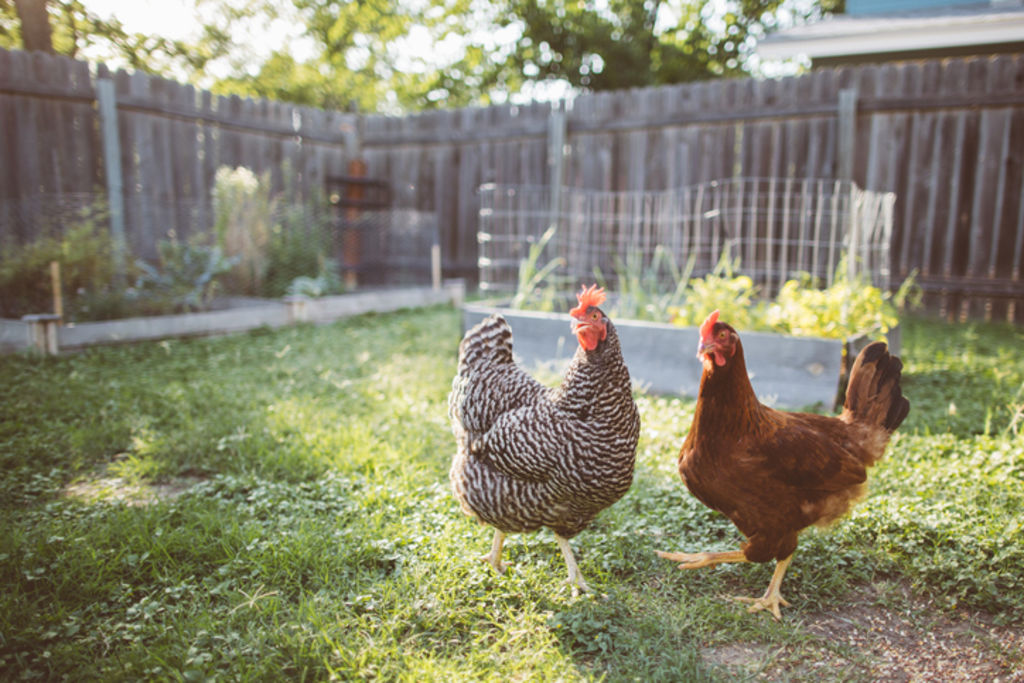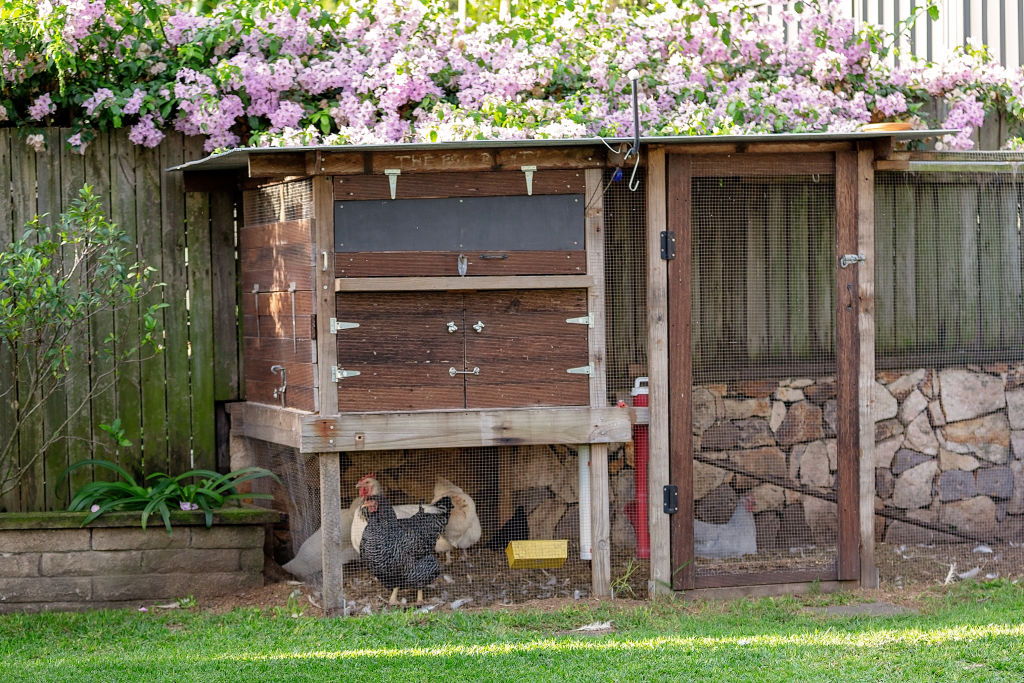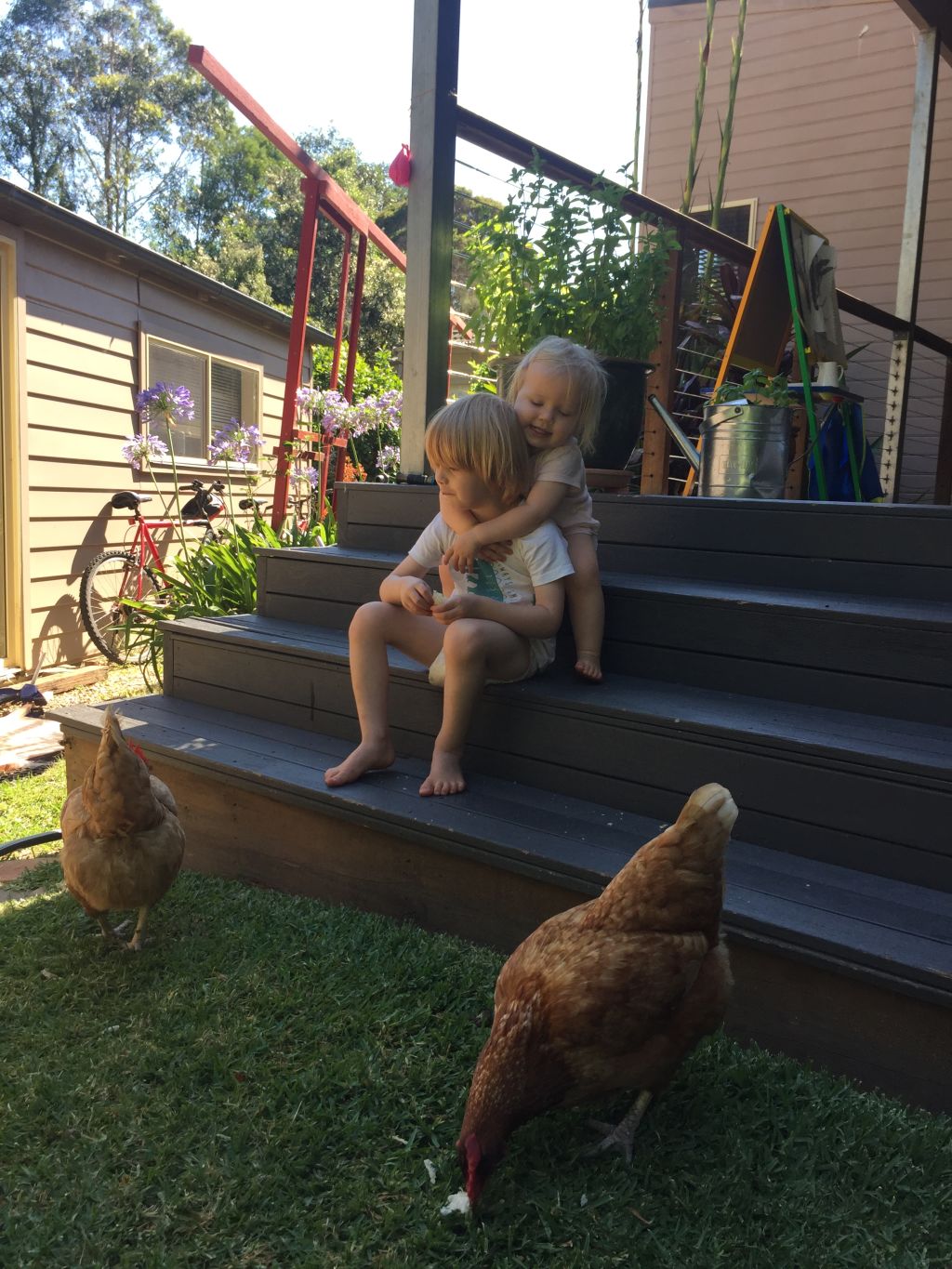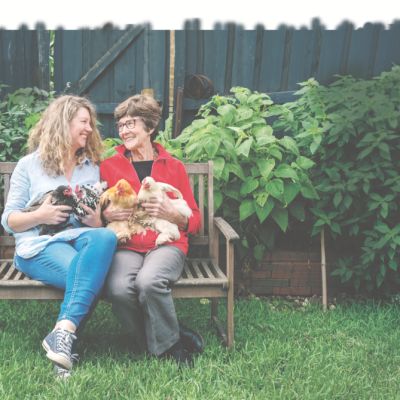All cooped up at home: Coronavirus triggers a run on backyard chickens

Poultry farms have experienced a surge in inquiries since mid-March, as people look to secure a steady supply of homegrown eggs in the midst of the COVID-19 pandemic.
It has been a stressful couple of weeks for Joanne Evans of Evans Chickens in Maraylya in northwest of Sydney, who says her hair is turning grey because the phone won’t stop ringing.
Evans says that they have sold four months’ worth of chickens in the past fortnight. She has even heard reports of people having their chickens stolen from their backyards.
“Chickens are like toilet paper at the moment,” she said. “With the COVID crisis suddenly everyone has decided that having backyard chickens is cool.”
Craig Hogarth of Laymour Poultry Farm in nearby Vineyard says from mid-March demand has been unprecedented.
“I normally sell about 380 to 400 a month if I am lucky, but I am now totally out of stock.” he said. “The April and May batches are pre-sold. I am now taking orders for June.”
Evans says they normally take time with people to teach them about the chickens and how to look after them, but in a time of social distancing she is now finding herself doing that by phone and text.
“We care about our chickens, so we like to make sure people have an idea of what they are doing with them before they slap them in their backyard and let a fox eat them,” said Evans.
Is your yard suitable for chickens?
Chickens require a coop to roost in and an outdoor chicken run, preferably in a dry area of the yard. They need to be enclosed in a fox-proof fence to prevent attacks by predators.
The minimum required space for a chicken run is one square metre per chicken, although chickens will appreciate as much space as can be afforded them. Chickens are social creatures, so you’ll need at least two so they have some companionship.
Each local council will have regulations around how many chickens you are allowed to own and how close they can be to your boundaries. There may also be restrictions on keeping roosters, which can be noisy.

How much do chickens cost?
The costs of chickens can vary depending on the breed.
A vaccinated hybrid chicken, bred for egg laying, like an ISA Brown, will cost between $20 and $40 each. These will produce eggs daily for around two years if well looked after.
While poultry farms can offer high quality coops, there are coop options that sell online for as little as $150, or if you are handy you could build one yourself.
Feed can vary in cost from $1 to $2.50 per kilogram and it will take about one kilogram of pellets a week to keep a chicken happy. This can be supplemented with kitchen scraps, weeds and insects from the garden.
Some other costs to consider are feeders and a worm and lice treatment every three months.
Do chickens make good pets?
Hogarth says chickens are a good option for family backyards. “You have a constant supply of eggs and it is a good activity to do with kids,” he said.
Growing up on a farm, Melbourne food writer Richard Cornish has had backyard chickens all his life.
“They have such a lovely personality,” he said. “I have a daughter who loves animals and we name each new flock after a theme. At the moment it is country singers, so we have Dolly Parton and Shania Twain.”
Rosie Chase and her partner James Grieve inherited a flock when they bought a house on the NSW central coast. They were surprised at how pronounced their chickens’ personalities were.
“They definitely have strong little quirks, you can get quite attached,” Chase said. “James has his own little call for them and they will come running. It is very cute.”

Chase and Grieve say their ISA Browns are friendly with kids and have an inquisitive nature. Their son Charlie loves to run after the chickens to try and catch them.
Getting attached can have its downsides, as the average backyard chicken only lives for around five years and they can succumb to pests and predators.
Chase and Grieve occasionally have small snakes appear in their yard that the chickens like to attack. They think it may have been the reason behind their recent loss of a chicken.
“We saw it pick one up and few hours later it was just unwell,” Grieve said. “It was quite sad and sobering.”
Cornish says that if people keep chickens primarily for their eggs, they are faced with a decision once they reach the end of their laying life.
“A true prepper will have an endgame for them, which would be ending up in a stock pot, but I am too much of a softy,” he said.
Evans believes you should have a plan in place before you buy. “Are they going to live with you – or are you going to have them ethically put down?”
Chickens in the garden ecosystem
Beyond being a pet or an egg laying unit, chickens can also be a valuable addition to the garden. Coops need to be cleaned regularly, but gardeners will find manure is beneficial for healthy plants.
Cornish likes to look at them in the bigger picture of the garden.
“They turn your kitchen scraps into edible protein and they also create really valuable fertiliser for the veggie garden and the herb garden,” he said.
Grieve will often let the chickens out of their run to roam free in the yard to help with controlling pests.
“They will go through your garden and eat weeds,” he said. “Apparently they eat ticks and spiders as well.”
Cornish believes even excess eggs can serve a valuable function.
“There is a great joy to be able share with your neighbours a dozen eggs.” he said. “It makes you part of that sharing community.”
Despite the run on backyard chickens, Hogarth doesn’t expect people to suffer from buyer’s regret.
“People may think they need to get chickens for the necessity of the coronavirus, but I think in the long run they’ll find they should have been doing this years ago.”
We recommend
We thought you might like
States
Capital Cities
Capital Cities - Rentals
Popular Areas
Allhomes
More









